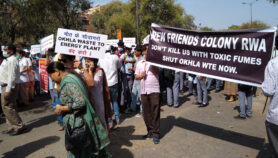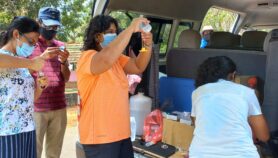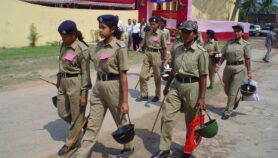By: Smriti Daniel
Send to a friend
The details you provide on this page will not be used to send unsolicited email, and will not be sold to a 3rd party. See privacy policy.
[COLOMBO] In the run-up to critical parliamentary elections on 17 August, Manthri.lk, a parliamentary performance monitoring website, is providing unprecedented insight into the workings of Sri Lanka’s government.
Asoka Obeyesekere, leader of the Manthri.lk team, says the site was created to bridge the information gap “between the parliament and the public.” The site is run by Verité, a non-partisan Colombo-based think tank in partnership with Saberion, a transnational web and mobile technology provider. Accessible in Sinhala, Tamil and English, it aims to promote transparency and good governance.
The site ranks Sri Lanka’s 225 MPs on productive time spent and is billed as an ‘MP monitoring scorecard.’ The impartial classification coding system is based on data collected from a comprehensive analysis of the Hansard, a verbatim record of parliamentary proceedings. MPs who are active and contribute to parliamentary proceedings in a procedurally correct manner are rewarded, while those who disrupt Parliament and impede its functions are penalised.
Obeyesekere explains that each minister is assigned a number within the system, allowing for a record of every contribution he or she makes in Parliament. Statements are qualified by methods of contribution, topic, type of debate and the language that the contribution is submitted in.
The site’s new ‘Election Hub’ allows visitors to see how MPs voted on key pieces of legislation, and offers additional rankings based on the minutes of the influential consultative committees. There is also a comprehensive list of candidate names and numbers which are otherwise hard to find in one place.
Obeyesekere stresses that Manthri.lk’s rankings are not definitive, as an MP’s value to his or her constituents might be determined by grassroots work undertaken outside Parliament. Information is also lacking, with MPs educational qualifications, Parliament attendance, and assets records not available in the public domain. “We have to rethink these arcane secrecy provisions that stop people from disseminating this vital information,” says Obeyesekere.
Policy Analyst Rohan Samarajiva says the site’s most important contribution is that it has given mainstream media information to work with but that the format may still be “a little too techy” for the average user.
Sanjana Hattotuwa, editor of the citizen journalism website Groundviews, agrees that the site is yet to see wide usage, which he says is unfortunate: “The value of such a site is that it allows citizens to keeps tabs on who they have elected into public office and parliament and to see if their representatives have lived up to their promises.”
This article has been produced by SciDev.Net's South Asia desk.














